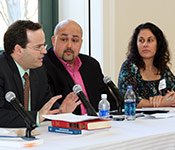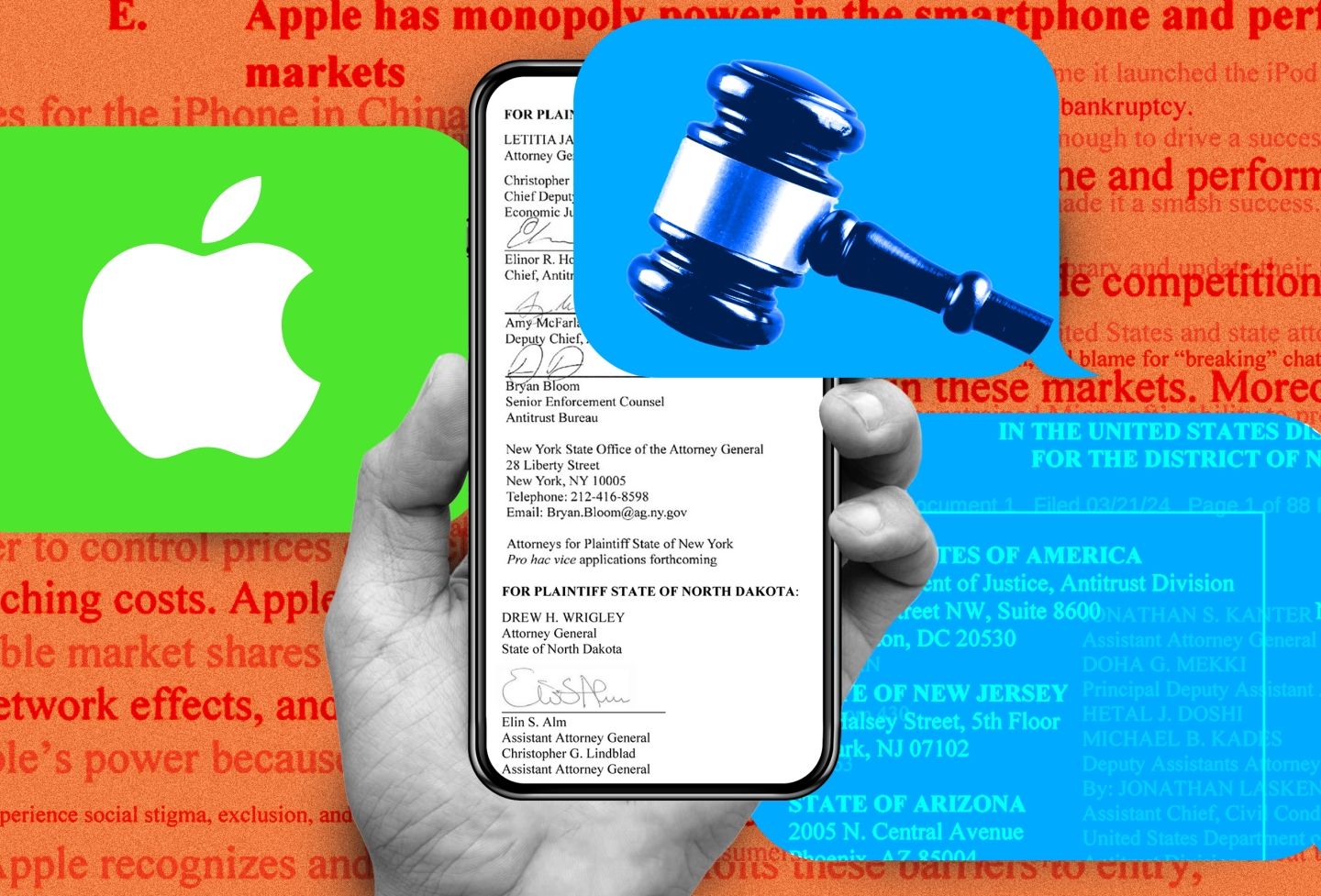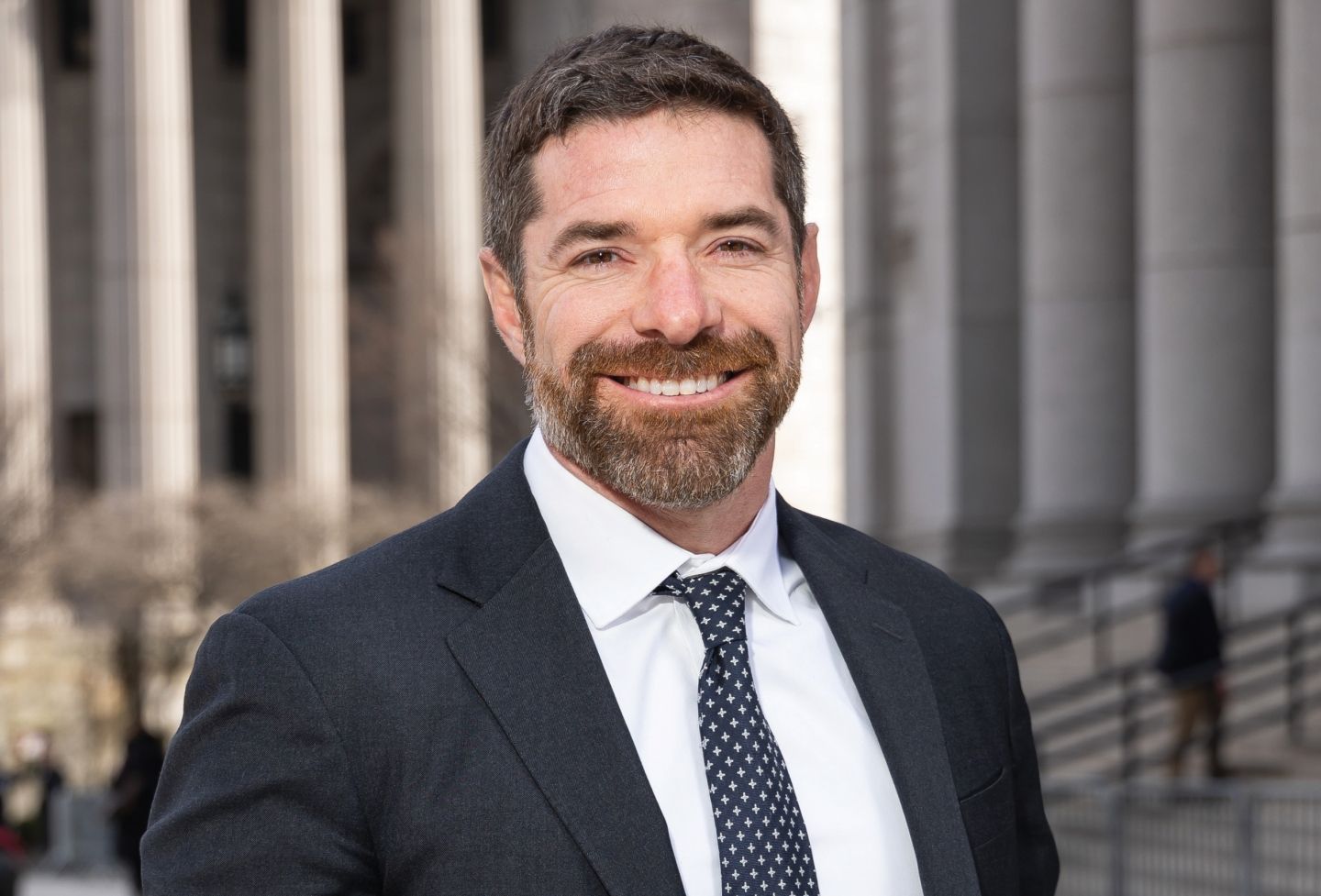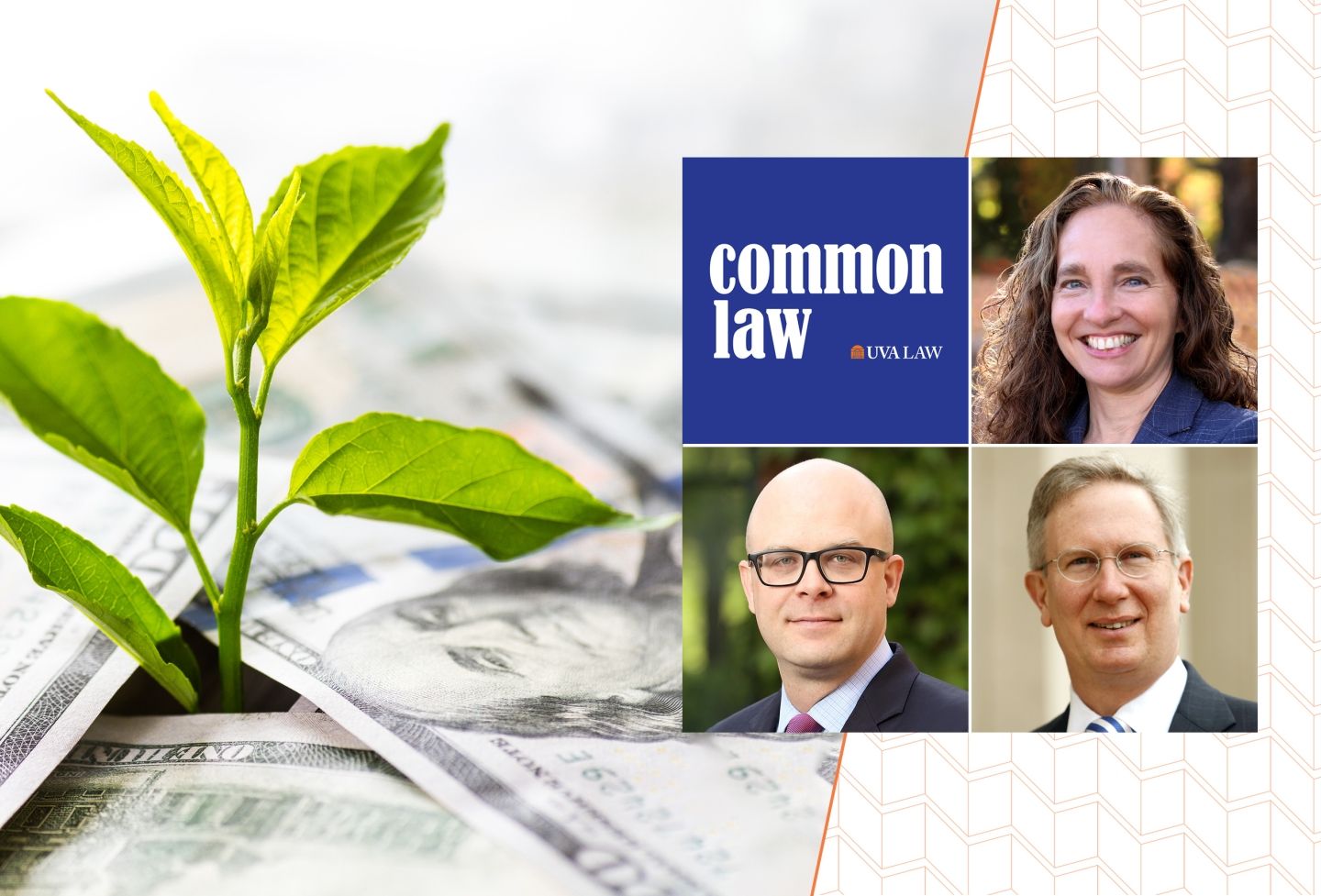Experts Debate Success of Digital Millennium Copyright Act
The Digital Millennium Copyright Act, now more than 10 years old, has been both a blessing and a curse to users and producers of technology and media, according to panelists who spoke Friday at a Virginia Journal of Law and Technology symposium.
 The 1998 act, or DMCA, is a law that criminalizes production and dissemination of technology, devices or services that circumvent measures to control access to copyrighted works. It also gives Web hosts and Internet service providers some protection from liability for the activities of their users.
The 1998 act, or DMCA, is a law that criminalizes production and dissemination of technology, devices or services that circumvent measures to control access to copyrighted works. It also gives Web hosts and Internet service providers some protection from liability for the activities of their users.
Panelists Siva Vaidhyanathan, an associate professor of media studies at the University of Virginia, and Law School associate professor Dotan Oliar criticized the DMCA for being ineffectual at achieving its goals.
Even the companies the DMCA was meant to protect, including iTunes and Amazon.com, have recently stopped using digital rights management (DRM) encryption to protect the media they sell, Oliar said. Further, he said, the DMCA has the power to erode rights previously permitted by copyright law under the “fair use” doctrine.
“Fair use has been traditionally this kind of breathing space that allows users to do other things, to improve, to create transformative works, add content. A breathing room to use and act and improve and remix pre-existing content which we think is important and crucial for our culture and has existed for 150 years,” Oliar said.
“What is the purpose of copyright and IP law? It’s to create an attractive and free culture in which people are able and free to create, to comment on their surroundings, to be active participating in social meaning-making rather than being passive consumers being constrained by digital laws that other people set for them, and if that’s the value and that’s where we want to go, and if the DMCA doesn’t have any clear benefits, I’m not sure the costs are worthwhile.”
However, Ann Chaitovitz, the executive director of the Future of Music Coalition, argued that the DMCA can benefit media consumers. First, she said, without the DMCA and the DRM encryption it protects, companies may never have put their media online in the first place.
Another positive effect of the DMCA, she said, is access-control DRMs, which enable companies to sell — but still limit — access to certain media. Instead of purchasing a DVD of a movie, Chaitovitz said, she’d rather pay a lesser price and download a movie that will “expire” from her computer in 24 hours.
“There are all kinds of new opportunities that consumers now have, rather than buying something full-on,” she said. “Personally, I watch movies once. I’d rather pay a smaller amount for a download that’s going to stream for 24 hours, download it before I fly, watch it once, that’s the end of it. That’s all DRM.”
However, Vaidhyanathan called DRM a “spectacular failure,” saying it is ineffectual at protecting media and has created anxiety among legitimate users of copyrighted material and forced companies to waste millions on research, attorneys and lobbyists. And, he added, it has helped Apple corner the market with the iPod while inhibiting other companies from creating successful devices that could be more innovative or less expensive.
“You can’t look at the list of goals that Congress had for this act or, for that matter, the Motion Picture Association or the Recording Industry Association of America, and say that any of those goals are met by section 1201 [of the DMCA]. Like zero. In fact, negative,” Vaidhyanathan said. “If anything, you have an environment now and since about 2000 where almost any valuable music or video file is available for free with a few clicks. It’s a situation that completely undermines any case for the effectiveness of this law.”
Oliar also argued that copyright law could have provided the protections the DMCA attempts to provide, but without any erosion of pre-existing fair-use provisions. After all, he said, the VCR, TV, radio, Xerox copy machine, tape recorder, satellite and cable TV all successfully pre-dated the DMCA.
Ultimately, he said, analyzing the DMCA leads to larger questions.
“Do we want a society of greater freedom [for] each one of us to take, cut, paste, comment on the world around us and … bring our inner creativity in, or are we forever destined to be passive consumers who have to act within the rigid walls that the content companies, or the current creators, are creating for us, and be forever doomed to be passive consumers?” Oliar asked.
Founded in 1819, the University of Virginia School of Law is the second-oldest continuously operating law school in the nation. Consistently ranked among the top law schools, Virginia is a world-renowned training ground for distinguished lawyers and public servants, instilling in them a commitment to leadership, integrity and community service.


